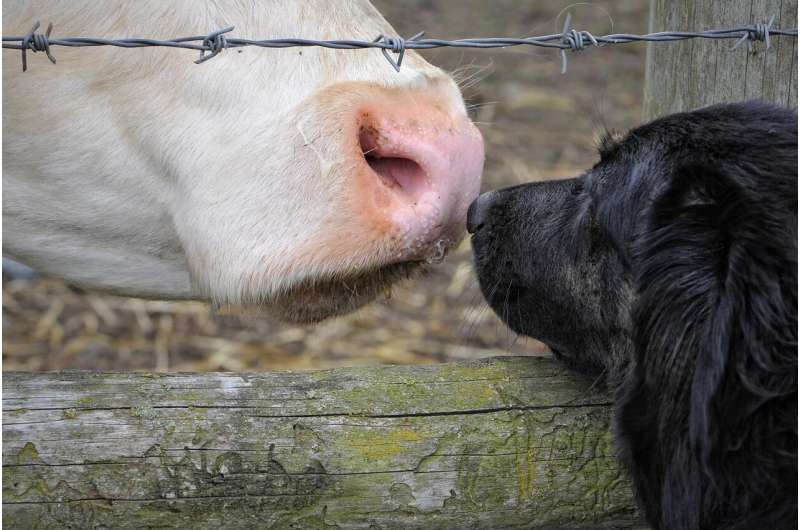Stronger legal protection needed for animals in Canada, says researcher

When it comes to laws protecting pets and livestock, Canada receives a failing grade.
In 2020, an international organization called World Animal Protection gave the country a D, placing it among a group that includes Tanzania, Peru and the United States.
The reason for that dismal ranking comes down to the "split jurisdiction" of Canadian federalism, according to Marcelo Rodriguez Ferrere, a doctoral candidate in law now completing his thesis on the topic after receiving an Izaak Walton Killam Memorial Scholarship last year.
Animal welfare is mostly relegated to the provinces and their "mishmash" of enforcement agencies, with little "abysmally poor" federal regulation ensuring a consistent standard of protection, says Rodriguez Ferrere.
"There is just pretty much nil regulation at the federal level—a few provisions within the Criminal Code relating to animal cruelty, and that's about it."
Provincially there are regulations closer to "voluntary codes" for the agriculture industry that rely on self-reporting rather than legal protections, and a weakly enforced Animal Protection Act for domestic animals.
Companion animals, such as dogs and cats, are treated differently from livestock, he says. Humane societies have little jurisdiction over the enforcement of animal welfare in agricultural practices, and agricultural regulations don't cover companion animals.
"We should definitely get rid of those distinctions, but that would be a major shift in thinking."
Alberta fares a little better than most provinces, he says. But even there humane societies are overstretched and underfunded. Much enforcement in Alberta falls to the Edmonton and Calgary humane societies, but their peace officers are funded mostly by donations, with very little coming from the province.
"That means there's a sector of criminal law we've dedicated essentially to a charity, and that's deeply problematic."
As a result, the Edmonton Humane Society announced it would stop enforcing the Alberta Animal Protection Act in 2019. That move prompted the city's police to create an animal cruelty unit headed by two officers devoted to curtailing abusive behavior toward pets and domestic animals.
"But that's a very reactive response," says Rodriguez Ferrere. "If this was any other sector of criminal law—traffic enforcement or domestic violence, say—there would be a massive outcry."
But the gap in the enforcement of animal protection laws goes well beyond concern for animals, he says, representing a bellwether for law enforcement in general.
"Even if you don't have the interest of animals in front of mind, it starts to erode the trust that we have in the legal system and the Constitution," he says. There is also a clearly established link between animal cruelty and abusive behavior toward humans.
Rodriguez Ferrere draws a parallel between Canada and his home country of New Zealand, which relies almost exclusively on its SPCA to enforce animal protection laws, with just 70 inspectors for a country of five million people and hundreds of millions of animals.
The solution, says Rodriguez Ferrere, includes more funding from both the federal and provincial governments and greater public awareness of the problem.
"We need to see greater resources go towards this, as well as a paradigm shift in thinking. Animals are in a special and vulnerable position within society, and we need to really think about how we protect them."
Provided by University of Alberta


















